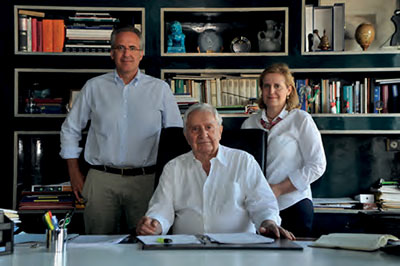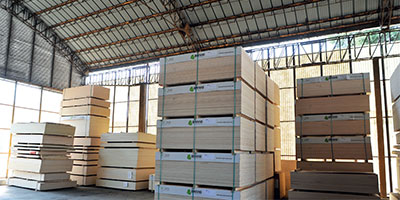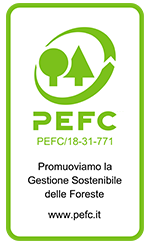Plywood panels, primarily made of poplar wood: this is what Brivio Compensati essentially produces and markets. The company, headquartered in Robbio, this year, is getting ready to celebrate its first 90 years of existence. Here, they work on what will become the “Mr. Wood,” like the one used, for example, even by the prestigious Arena di Verona in the set design for Giuseppe Verdi’s opera “Aida.”
It has been since as far back as 1929 that this company, thanks to its founder and progenitor Attilio Brivio, has been involved in wood processing, particularly poplar.
An initially artisanal business, which then transformed into an industrial one in the early 1950s, following the changed corporate strategies designed and coordinated by Massimo Brivio, who is still the company’s president. Now, the helm is in the hands of the third generation: Attilio and Susanna Brivio, aged 53 and 56 respectively, children of Massimo. Both hold degrees in Economics and Commerce and currently serve as the CEOs of a highly significant entity with around a hundred employees and an annual turnover of approximately 11 million euros, with 75% of production destined for foreign markets. The primary markets are European countries, notably Germany, England, and France.
“The fourth generation of our family,” state Attilio and Susanna Brivio, “comprises seven young individuals ranging in age from 25 to 15 years old. After completing their educational journey and gaining necessary international experience, they will steer the company into the near future. However, it’s essential to remember that Brivio Compensati has a long history. In the early 1930s, poplar wood was processed here to make slats for roller blinds. Then, we transitioned to pressing panels. In the immediate post-war period, our father Massimo gave the first real push towards industrialization by acquiring significant foreign clients with special requirements for various products, including the first high-quality wooden televisions for the United States market. Since then, the company has had a well-defined structure, catering directly to the end-users of our products .”
“In the meantime,” add the CEOs, “we have developed two other businesses. The first, located in Vespolate, near Robbio, is an agricultural company that produces poplar trees and rice. The second is a metalworking company located in southern Brazil, specializing in wood processing machinery.“
Brivio Compensati has strong ties to the local community: almost all the employees come from the area, and at least 80% of the raw materials used are sourced locally.
In recent months, a project in collaboration with local farmers has been initiated. The goal is to provide concrete support and a joint effort to improve poplar cultivation, with a ten-year horizon. Every day, approximately 1200 quintals of wood, derived from 250 poplar trees, are processed within the Robbio facility.
“We find ourselves in a sort of circular economy,” emphasizes Susanna Brivio,, “since every tree that is cut down is immediately replaced by another tree. In other words, it’s genuine recycling. Furthermore, trees, which provide oxygen and capture carbon in their fibers, are now the differentiating factor between a polluted or clean environment. We don’t destroy trees; we use cultivated poplars, which have a ten-year cycle, and we immediately plant new ones. The wood industry is truly essential for achieving a healthier environment.”
“We are certified for the final product,” explains Attilio, her brother, “as we follow a protocol related to cultivation and the supply chain, ensuring the traceability of materials. The trees are grown according to very specific rules regarding the products used.”
“In recent years,” he adds,“the sector has faced a certain crisis, with the closure of several companies. Therefore, we have implemented a series of interventions aimed at improving quality and service, with significant investments in new and more modern facilities.
. We have decided to focus more on research and development, including through agreements signed with the Politecnico di Milano and other university entities.”
The main market is in transportation: for leisure (caravans, motorhomes, and, for many years now, also the boating industry) and for passenger transport (buses), where the lightness and durability of poplar are highly appreciated qualities. Other sectors include the DIY (Do-It-Yourself) sector, furniture, musical instruments, construction, and, in specific cases, high-end furniture projects, quality craftsmanship, and packaging (for example, cases for the transport of a well-known watch brand).
There are no specific standards; the company is known for custom production for its clients, offering 360-degree flexibility and a strong focus on service. Numerous training courses are organized by the company in Robbio, aimed at empowering all personnel: each collaborator has a specific and active role.
In any case, safety is another of our main objectives. Research also plays an increasingly important role in this sector.
“Our company,” Attilio and Susanna Brivio conclude, “has specific characteristics compared to others operating in the same industry. Many of our competitors primarily produce standard panels for retailers. As mentioned, we exclusively produce for end-users of the products.” ”




